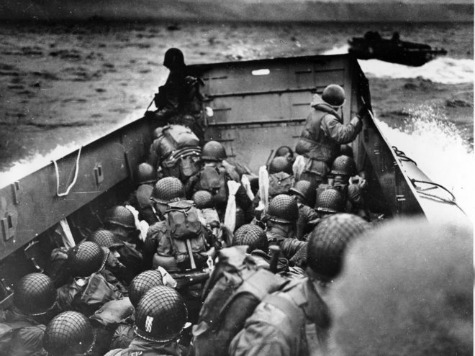
The word “War” instantly brings certain images and sentiments to the mind.
For the longest time it was images of apocalyptic trenches, shattered cities, tank battles and dog fights. For decades, the word war was intimately associated with horrific civilian casualties coupled with an unswerving sense of duty to risk all in a fight for civilization. That is the why we commemorate the D-Day landings today. The pivotal operation that would break the back of the mass-murderer Adolf Hitler’s “thousand-year Reich.”
After the religiously-motivated mass murders of September 11th 2001, our feelings and attitude toward war changed.
Many came to associate it with god-forsaken “quagmires,” faulty intelligence on the weapons of our enemies, and a desire to pull back from the world and focus on our needs back home.
Has war changed that much since the D-Day landings? No it hasn’t.
As the master of modern war, Carl von Clausewitz, explained 200 years ago, the form and shape of war always changes, from the Trojan Horse of Ancient Greece to the atomic weapons of the 20th century. But it’s essence never changes. At its very core war has always been a battle of wills. Victory comes when one side successfully imposes its will on the other side and the killing can finally stop.
Although today our warriors are not testing their mettle against enemy fighter pilots above the British Channel or joining battle in tank platoons across the flatlands of Europe, they still risk all in a ‘Them or Us fight’ with an Enemy that will not back down.
And while Operations Enduring Freedom and Iraqi Freedom looked very different from the Normandy landings, in response to the growing crisis in Eastern Europe, Der Spiegel, perhaps the most influential German news magazine, this week described the Ukrainian conflict the new “European War,” within Ukraine now in the position Poland was in in 1939. This is a remarkable statement given the country in which Der Spiegel is published.
Whatever happens in Europe, war will not have radically changed. Why? Because of the brave soldiers, sailors, airmen, and marines who fight our wars for us.
The D-Day commemorations are less about the events on Omaha Beach then they are about the common character of all who have, do and will, don the uniform of the United States. D-Day is about a commitment to the principles upon which our Republic was founded, and the willingness to lay down one’s life for the values they represent.
When you consider D-Day today, think of your fellow American in a far away field on patrol, in a submarine hundreds of feet under the sea, or flying an aerial mission for us. For what war looks like and where we fight it may change, what is required to fight never will.
Sebastian Gorka PhD has been appointed the Major General Horner Chair of Military Theory at Marine Corps University and is the National Security Editor of Breitbart.com .

COMMENTS
Please let us know if you're having issues with commenting.